Yeah and then see him beat Reagan that'd be satisfying to seeIf the 1980 election is between RFK and Reagan, and that seems to be very likely, I'd see Hoffa try to back Reagan's campaign, due to his hatred for Kennedy.
You are using an out of date browser. It may not display this or other websites correctly.
You should upgrade or use an alternative browser.
You should upgrade or use an alternative browser.
Blue Skies in Camelot (Continued): An Alternate 80s and Beyond
- Thread starter President_Lincoln
- Start date
It's enough to make a grown man cry, and that's okay! I've finally seen the light already geniuses, the future is getting brighter ITTL! Kennedy-Murphy 1980: The New Frontiers!
I can already see that genius. With Hoffa getting his jail release in March of 1980, he'll go to Reagan to backed his Presidential Election against RFK. They may try, but no one would stop Senators Kennedy and Murphy. If Hoffa even tries to criticize Senator Kennedy's running-mate Senator Murphy, he'll be get a lot of anger and disappointment not just to the Veterans of The Second World War, but to the Americans who admired him.If the 1980 Election is between RFK and Reagan, and that seems to be very likely, I'd see Hoffa try to back Reagan's Campaign, due to his hatred for Kennedy.
Espeically since Hoffa never served one day in uniform that wasn't a prison uniform.It's enough to make a grown man cry, and that's okay! I've finally seen the light already geniuses, the future is getting brighter ITTL! Kennedy-Murphy 1980: The New Frontiers!
I can already see that genius. With Hoffa getting his jail release in March of 1980, he'll go to Reagan to backed his Presidential Election against RFK. They may try, but no one would stop Senators Kennedy and Murphy. If Hoffa even tries to criticize Senator Kennedy's running-mate Senator Murphy, he'll be get a lot of anger and disappointment not just to the Veterans of The Second World War, but to the Americans who admired him.
Hmm, for all his faults, I don't think Gipper would take Hoffa's potential offer to back him—too much taint. A certain Tricky Dick and his dark accolades, on the other hand...
Yeah well if Tricky Dick doesn't end up the nominee and judging by what the author edited in his opening of this thread he isn't it's not gonna matterHmm, for all his faults, I don't think Gipper would take Hoffa's potential offer to back him—too much taint. A certain Tricky Dick and his dark accolades, on the other hand...
Fair point. With Stone and others being part of Nixon's campaign here, they might be willing to take up Hoffa's offer, if he makes one, that is.Hmm, for all his faults, I don't think Gipper would take Hoffa's potential offer to back him—too much taint. A certain Tricky Dick and his dark accolades, on the other hand...
Espeically since Hoffa never served one day in uniform that wasn't a prison uniform.
They're going to lose, even Hoffa backed his support for Nixon. No matter what happens to the Republicans, they're all going to lose! Speaking of the 80's, I wonder what's going to happen on Mark David Chapman (John Lennon's Assassin IOTL) and John Hinckley, Jr. (Ronald Reagan's Assassin IOTL) now that the new decade has changed a lot ITTL?Hmm, for all his faults, I don't think Gipper would take Hoffa's potential offer to back him—too much taint. A certain Tricky Dick and his dark accolades, on the other hand...
True. At the very least, Gipper would have to fight his nomination tooth and nail, not being handed to him on a silver plate. The GOP primaries, I think would be messy, at least in comparison with the Democratic primaries.Yeah well if Tricky Dick doesn't end up the nominee and judging by what the author edited in his opening of this thread he isn't it's not gonna matter
A very interesting question! I will definitely expand on this as we move into the 1980s. For now, know that investments in passenger rail made in the 60s and 70s will continue into the 80s and beyond. Ideally, by the modern day, "Amtrak" or its TTL equivalent, would have the nationwide network of high-speed connections that you mentioned. Though this would indeed cut into the short-haul airline market, it would probably be the more sustainable and affordable option overall.Mr. President @President_Lincoln , you did mention in several previous posts that public transport in the TTL US is considerably better than OTL. My question is: will the high-speed rail programs greenlit by the Kennedy and Bush administrations evolve into a nationwide network of bullet trains covering all major American cities, akin to Japan's Shinkansen network? (Perhaps named Amerirail?) Sure, while the enormous infrastructure project would have several negative side effects, including but not limited to its massive cost and causing stock prices of short-haul airlines to plummet, its significant beneficial effect on America's business, economy, society, environment, and culture would, in the long term, outweigh the negative.
Very nice!
Chapter 132 (Part II)
Chapter 132 (Part II) - Video Killed the Radio Star: British TV in the 1970s
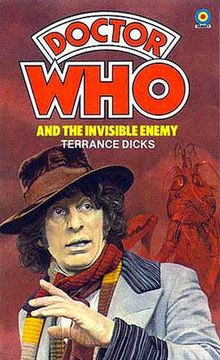
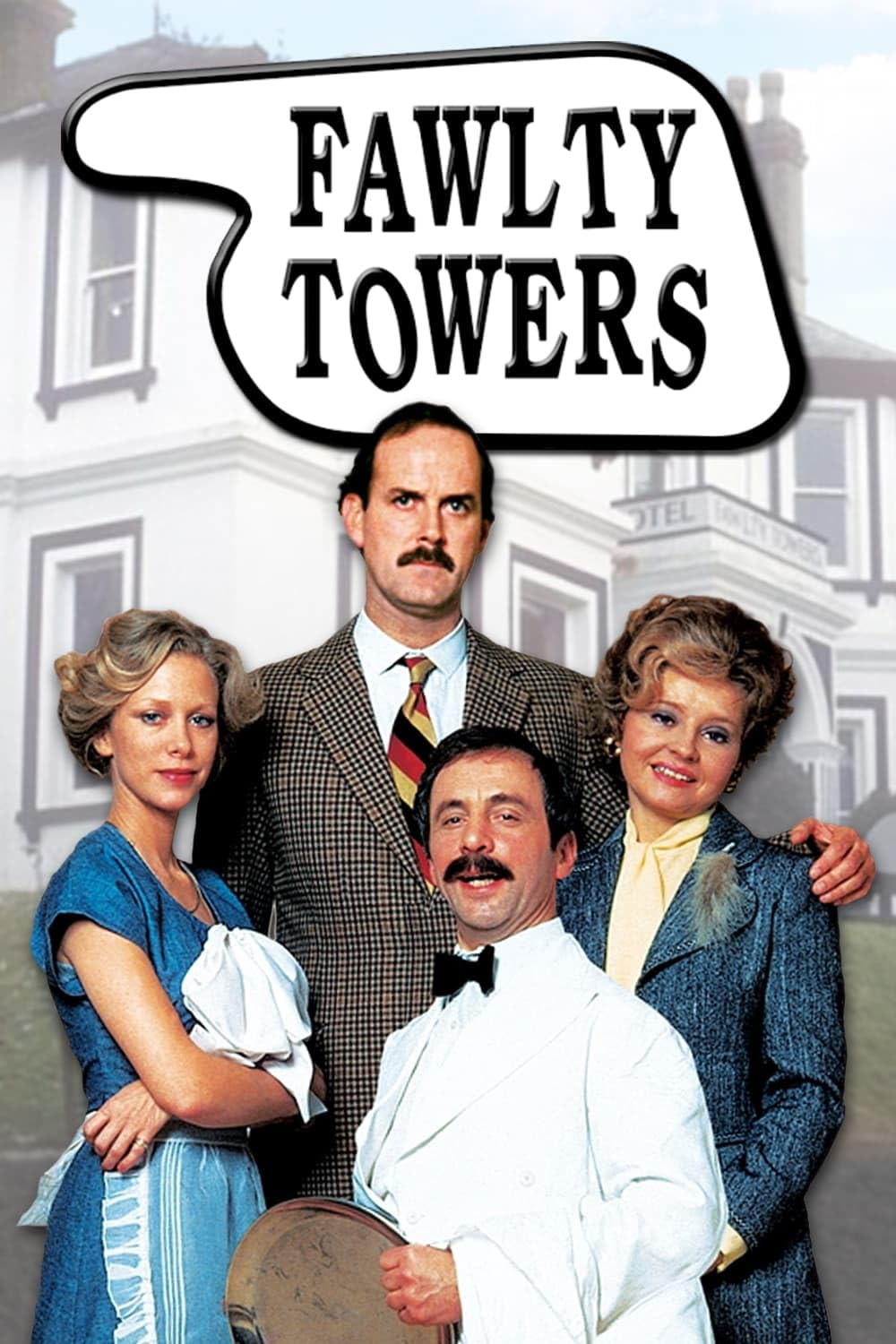
Above: Tom Baker as the Fourth Doctor on Doctor Who (left); the Cast of Fawlty Towers, one of the most beloved and iconic television comedies of all time (right).
Above: Tom Baker as the Fourth Doctor on Doctor Who (left); the Cast of Fawlty Towers, one of the most beloved and iconic television comedies of all time (right).
"The very powerful and the very stupid have one thing in common - they don't change their views to fit the facts. They change the facts to fit their views, which can be uncomfortable if you happen to be one of the facts that needs changing." - Tom Baker as the Fourth Doctor on Doctor Who
Guest: "When I pay for a view, I expect something more interesting than that."
Basil: "But that is Torquay, madam."
Guest: "Well it's not good enough."
Basil: "Well may I ask what you expected to see out of a Torquay hotel bedroom window? Sydney Opera House perhaps? The Hanging Gardens of Babylon? Herds of wildebeest sweeping majestically across the plain..."
Guest: "Don't be silly. I expect to be able to see the sea."
Basil: "You can see the sea! It's over there between the land and the sky!"
Guest: "I'd need a telescope to see that."
Basil: "Well might I suggest you move to a hotel closer to the sea. Or preferably in it."
- Interaction between John Cleese as Basil Fawlty and a guest on Fawlty Towers.
Just as they were in the United States, the 1970s were a transformative and unforgettable decade for British television. Often regarded as the "Golden Era" of TV, this period brought about a unique blend of nostalgia and innovation that continues to influence the industry to this day. With the advent of color broadcasting, groundbreaking shows, and a cultural shift that embraced diversity and new ideas, the 1970s was a time of great change and growth for British television. In this addendum to Chapter 132, we'll take a closer look at the remarkable television landscape of the 1970s, exploring the most iconic shows, significant moments, and the lasting impact of this era on the medium.
For one thing, the 1970s marked a pivotal moment in the history of British television as it transitioned from black and white to color. The first color broadcasts had already begun in the late 1960s, but it wasn’t until the 70s that this shift became more pronounced and widespread. Color television was not only a technical advancement but also a cultural one, as it brought a new level of vibrancy to the screens in people's homes.
One of the most memorable moments in this transition was the airing of the first color episode of Doctor Who in 1970. The show had already been a beloved staple of British television, but the introduction of color added a new dimension to the adventures of the Time Lord and his companions, making the show more visually captivating. The Doctor at the time - the 3rd, played by Alec Guinness - would be somewhat overshadowed by his successor in Tom Baker, but he is still a beloved incarnation of the character.
The 1970s gave birth to several iconic television shows that have left an indelible mark on British culture and television history. Among them, one of the most influential was Fawlty Towers. Created by and starring John Cleese (Monty Python’s Flying Circus wrapped its final series in 1974), this sitcom about the misadventures of a hapless hotel owner, Basil Fawlty, and his eccentric staff, remains a classic example of British humor. Its memorable characters, witty dialogue, and farcical situations have continued to entertain audiences for decades, and inspired many sitcoms that have come since. Though initially, reviews of the show were mixed to negative, Cleese and his team continued producing episodes and eventually, audiences caught on to what they were serving up. The show would run for four series between 1975 and 1979, producing a total of twenty-four episodes.
Another enduring classic of the era is Dad's Army. A sitcom, which ran from 1968 to 1977, revolved around the misfit soldiers of the Walmington-on-Sea Home Guard during World War II. The show's humor, largely based on the quirks and foibles of its older characters (played by several of Britain's finest television actors), made it an endearing favorite.
There was Steptoe and Son. This sitcom explored the complex relationship between a father and son who ran a rag-and-bone business. The show, characterized by its mix of humor and pathos, touched on the challenges and dynamics of family life in a working-class setting.
In addition to these comedies, the 1970s saw the rise of thought-provoking dramas. Upstairs, Downstairs offered a glimpse into the lives of the upper-class Bellamy family and their servants during the early 20th century. The show was celebrated for its attention to historical accuracy and complex character development.
The 1970s were a groundbreaking era for British science fiction television.
Doctor Who remained probably the most iconic British sci-fi series of the era. Its popularity, especially internationally, exploded with the 1978 release of Doctor Who Meets Scratchman by Disney, in which Tom Baker’s Fourth Doctor boldly faced off with the eponymous villain (played by the ever dazzling Vincent Price). Following the film’s release (which was a modest success for both the BBC and Disney), PBS purchased the rights to air episodes of Doctor Who in the United States for the first time with any regularity. Though PBS made little effort to promote the show, it soon attained a cult-following in America.
Blake's 7, meanwhile, brought a darker and more dystopian vision of the future to the screen. Created by Terry Nation, the series followed a group of rebels as they fought against a totalitarian regime in space. The show's morally complex characters and political undertones made it a cult hit, though it was not without its critics.
In January 1998 Robert Hanks of The Independent compared the series' ethos to that of Star Trek. He wrote: "If you wanted to sum up the relative position of Britain and America in this century — the ebbing away of the pink areas of the map, the fading of national self-confidence as Uncle Sam proceeded to colonize the globe with fizzy drinks and Hollywood — you could do it like this: they had Star Trek, we had Blake's 7 ... No 'boldly going' here: instead, we got the boot stamping on a human face which George Orwell offered as a vision of humanity's future in Nineteen Eighty-Four". Hanks concluded that "Blake's 7 has acquired a credibility and popularity Terry Nation can never have expected ... I think it's to do with the sheer crappiness of the series and the crappiness it attributes to the universe: it is science-fiction for the disillusioned and ironic — and that is what makes it so very British"
The 1970s also saw the rise of supernatural and horror-themed TV shows, along with thrillers.
The New Avengers, sequel to The Avengers, which had been a popular series in the 1960s, continued to captivate audiences in the 1970s with its blend of espionage, eccentric characters, and surreal storylines. After much cajoling (and a major pay hike and co-top billing), Diana Rigg, who played Emma Peel, partner to series protagonist John Steed (Patrick Mcnee) was convinced to return for the new series, which saw her and her old partner work together to carry on new missions and train a new generation of agents. The show would run from 1975 until 1980. Though seen as inferior to the original program, fans of the franchise often still admit to “enjoying” the sequel.
Above: Title card for The New Avengers; Joanna Lumley and David McCallum on Sapphire & Steel.
Sapphire & Steel, a cult classic created by Peter J. Hammond, explored paranormal mysteries involving two mysterious agents played by David McCallum and Joanna Lumley. The show's enigmatic atmosphere and intricate storytelling made it a standout in the world of supernatural thrillers. It ran from July of 1979 to August of 1982.
Once again similar to the United States, the 70s were marked by a significant cultural shift in British television. This period saw a growing emphasis on diversity and a willingness to tackle social issues.
Till Death Us Do Part was one such show that pushed boundaries. This controversial sitcom, created by Johnny Speight, revolved around the bigoted and prejudiced character of Alf Garnett (Warren Mitchell). A reactionary, white, working-class man living on the East End of London, Garnett has harsh anti-socialist views, not to mention racist ones as well. Mitchell was joined in the cast by Dandy Nichols as Alf’s long-suffering wife Else, Una Stubbs as his daughter, Rita, and Anthony Booth as Rita’s husband, Mike Rawlins, a “socialist layabout from Liverpool” who often locked horns with his father-in-law. Although the show generated both criticism and praise for its portrayal of a divisive character, it addressed important issues of the time. It also served as the template for All in the Family in the United States.
Mind Your Language was another show that tried to engage with issues of diversity, albeit through humor. The series centered on the interactions between a multicultural group of adult students learning English as a second language. While it may have contributed to conversations about multiculturalism in England at the time, the show usually used its foreign characters as “the butt of the joke”, and was generally held by audiences to be fairly mean-spirited. The show lasted only one series before being canceled.
Another show that poked fun at political issues of the day was Citizen Smith. Written by John Sullivan, and broadcast from 1977 to 1980, the show is a sitcom starring Robert Lindsay as Walter Henry "Wolfie" Smith, a young Marxist "urban guerrilla" in Tooting, south London, who is attempting to emulate his hero Che Guevara. Wolfie is a reference to the Irish revolutionary Wolfe Tone, who used the pseudonym "Citizen Smith" in order to evade capture by the British. Wolfie is the self-proclaimed leader of the revolutionary Tooting Popular Front (the TPF, merely a small bunch of his friends), the goals of which are "Power to the People" and "Freedom for Tooting". Wolfie dresses in a stereotypical fashion for rebellious students of the period: logoed T-shirt, denim jeans and Afghan coat. He supports Fulham F. C. and occasionally wears a Fulham scarf. He rides a scooter and spends most of the time at his girlfriend's house, which means he constantly clashes with her parents.
Above: Robert Lindsay as “Wolfie” Smith in Citizen Smith; An early episode of Top Gear
Top Gear was a British motoring magazine programme created by the BBC and aired on BBC Two beginning in April of 1977. The programme focused on a range of motoring topics, the most common being car reviews, road safety and consumer advice. Originally presented by Angela Rippon and Tom Coyne, the show would eventually see a range of different presenters and reporters front the programme's half-hourly slots, including Noel Edmonds, Jeremy Clarkson, Tiff Needell, William Woollard and Quentin Willson.
There were, of course, also variety shows, game shows, sporting events (especially football), the news, and a variety of other programmes for viewers to choose from as well. As it did across the Pond, British television in the 1970s matured and took its audience more seriously, even as it was trying to make them laugh.
Next Time on Blue Skies in Camelot: Music in the 70s - A Retrospective
Last edited:
Messy and a bear knuckle fight. Probably so much that when Reagan gets the nomination the moderates of the party are just gonna be in so much disgust that I think they will refuse to declare support for him all the while refusing to declare support for RFK but I think some of them would consider voting for him. It would be the most epic split that the GOP experiences in this timeline so far I feel.True. At the very least, Gipper would have to fight his nomination tooth and nail, not being handed to him on a silver plate. The GOP primaries, I think would be messy, at least in comparison with the Democratic primaries.
Nice Chapter good summary of how British television is doingChapter 132 (Part II) - Video Killed the Radio Star: British TV in the 1970s


Above: Tom Baker as the Fourth Doctor on Doctor Who (left); the Cast of Fawlty Towers, one of the most beloved and iconic television comedies of all time (right).
"The very powerful and the very stupid have one thing in common - they don't change their views to fit the facts. They change the facts to fit their views, which can be uncomfortable if you happen to be one of the facts that needs changing." - Tom Baker as the Fourth Doctor on Doctor Who
Guest: "When I pay for a view, I expect something more interesting than that."
Basil: "But that is Torquay, madam."
Guest: "Well it's not good enough."
Basil: "Well may I ask what you expected to see out of a Torquay hotel bedroom window? Sydney Opera House perhaps? The Hanging Gardens of Babylon? Herds of wildebeest sweeping majestically across the plain..."
Guest: "Don't be silly. I expect to be able to see the sea."
Basil: "You can see the sea! It's over there between the land and the sky!"
Guest: "I'd need a telescope to see that."
Basil: "Well might I suggest you move to a hotel closer to the sea. Or preferably in it."
- Interaction between John Cleese as Basil Fawlty and a guest on Fawlty Towers.
Just as they were in the United States, the 1970s were a transformative and unforgettable decade for British television. Often regarded as the "Golden Era" of TV, this period brought about a unique blend of nostalgia and innovation that continues to influence the industry to this day. With the advent of color broadcasting, groundbreaking shows, and a cultural shift that embraced diversity and new ideas, the 1970s was a time of great change and growth for British television. In this addendum to Chapter 132, we'll take a closer look at the remarkable television landscape of the 1970s, exploring the most iconic shows, significant moments, and the lasting impact of this era on the medium.
For one thing, the 1970s marked a pivotal moment in the history of British television as it transitioned from black and white to color. The first color broadcasts had already begun in the late 1960s, but it wasn’t until the 70s that this shift became more pronounced and widespread. Color television was not only a technical advancement but also a cultural one, as it brought a new level of vibrancy to the screens in people's homes.
One of the most memorable moments in this transition was the airing of the first color episode of Doctor Who in 1970. The show had already been a beloved staple of British television, but the introduction of color added a new dimension to the adventures of the Time Lord and his companions, making the show more visually captivating. The Doctor at the time - the 3rd, played by Alec Guinness - would be somewhat overshadowed by his successor in Tom Baker, but he is still a beloved incarnation of the character.
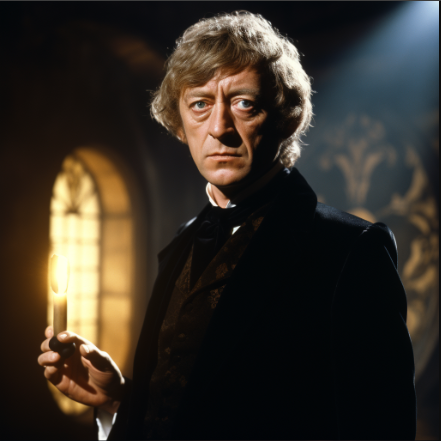
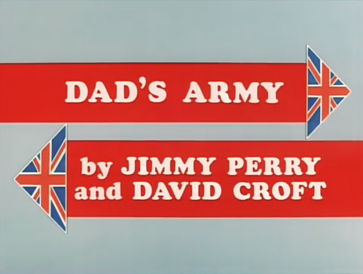
The 1970s gave birth to several iconic television shows that have left an indelible mark on British culture and television history. Among them, one of the most influential was Fawlty Towers. Created by and starring John Cleese (Monty Python’s Flying Circus wrapped its final series in 1974), this sitcom about the misadventures of a hapless hotel owner, Basil Fawlty, and his eccentric staff, remains a classic example of British humor. Its memorable characters, witty dialogue, and farcical situations have continued to entertain audiences for decades, and inspired many sitcoms that have come since. Though initially, reviews of the show were mixed to negative, Cleese and his team continued producing episodes and eventually, audiences caught on to what they were serving up. The show would run for four series between 1975 and 1979, producing a total of twenty-four episodes.
Another enduring classic of the era is Dad's Army. A sitcom, which ran from 1968 to 1977, revolved around the misfit soldiers of the Walmington-on-Sea Home Guard during World War II. The show's humor, largely based on the quirks and foibles of its older characters (played by several of Britain's finest television actors), made it an endearing favorite.
There was Steptoe and Son. This sitcom explored the complex relationship between a father and son who ran a rag-and-bone business. The show, characterized by its mix of humor and pathos, touched on the challenges and dynamics of family life in a working-class setting.
In addition to these comedies, the 1970s saw the rise of thought-provoking dramas. Upstairs, Downstairs offered a glimpse into the lives of the upper-class Bellamy family and their servants during the early 20th century. The show was celebrated for its attention to historical accuracy and complex character development.
The 1970s were a groundbreaking era for British science fiction television.
Doctor Who remained probably the most iconic British sci-fi series of the era. Its popularity, especially internationally, exploded with the 1978 release of Doctor Who Meets Scratchman by Disney, in which Tom Baker’s Fourth Doctor boldly faced off with the eponymous villain (played by the ever dazzling Vincent Price). Following the film’s release (which was a modest success for both the BBC and Disney), PBS purchased the rights to air episodes of Doctor Who in the United States for the first time with any regularity. Though PBS made little effort to promote the show, it soon attained a cult-following in America.
Blake's 7, meanwhile, brought a darker and more dystopian vision of the future to the screen. Created by Terry Nation, the series followed a group of rebels as they fought against a totalitarian regime in space. The show's morally complex characters and political undertones made it a cult hit, though it was not without its critics.
Above: The Blake's 7 cast in Series One (1978): Michael Keating (Vila); Jan Chappell (Cally); Gareth Thomas (Blake); Sally Knyvette (Jenna); Paul Darrow (Avon) and David Jackson (Gan). Zen is behind.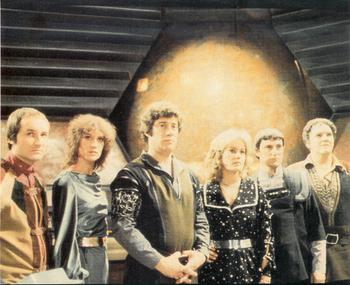
In January 1998 Robert Hanks of The Independent compared the series' ethos to that of Star Trek. He wrote: "If you wanted to sum up the relative position of Britain and America in this century — the ebbing away of the pink areas of the map, the fading of national self-confidence as Uncle Sam proceeded to colonize the globe with fizzy drinks and Hollywood — you could do it like this: they had Star Trek, we had Blake's 7 ... No 'boldly going' here: instead, we got the boot stamping on a human face which George Orwell offered as a vision of humanity's future in Nineteen Eighty-Four". Hanks concluded that "Blake's 7 has acquired a credibility and popularity Terry Nation can never have expected ... I think it's to do with the sheer crappiness of the series and the crappiness it attributes to the universe: it is science-fiction for the disillusioned and ironic — and that is what makes it so very British"
The 1970s also saw the rise of supernatural and horror-themed TV shows, along with thrillers.
The New Avengers, sequel to The Avengers, which had been a popular series in the 1960s, continued to captivate audiences in the 1970s with its blend of espionage, eccentric characters, and surreal storylines. After much cajoling (and a major pay hike and co-top billing), Diana Rigg, who played Emma Peel, partner to series protagonist John Steed (Patrick Mcnee) was convinced to return for the new series, which saw her and her old partner work together to carry on new missions and train a new generation of agents. The show would run from 1975 until 1980. Though seen as inferior to the original program, fans of the franchise often still admit to “enjoying” the sequel.
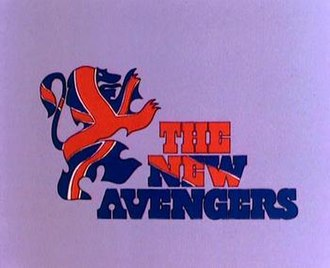
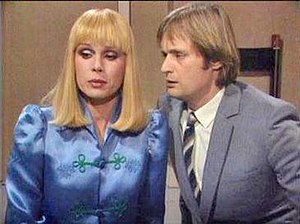
Above: Title card for The New Avengers; Joanna Lumley and David McCallum on Sapphire & Steel.
Sapphire & Steel, a cult classic created by Peter J. Hammond, explored paranormal mysteries involving two mysterious agents played by David McCallum and Joanna Lumley. The show's enigmatic atmosphere and intricate storytelling made it a standout in the world of supernatural thrillers. It ran from July of 1979 to August of 1982.
Once again similar to the United States, the 70s were marked by a significant cultural shift in British television. This period saw a growing emphasis on diversity and a willingness to tackle social issues.
Till Death Us Do Part was one such show that pushed boundaries. This controversial sitcom, created by Johnny Speight, revolved around the bigoted and prejudiced character of Alf Garnett (Warren Mitchell). A reactionary, white, working-class man living on the East End of London, Garnett has harsh anti-socialist views, not to mention racist ones as well. Mitchell was joined in the cast by Dandy Nichols as Alf’s long-suffering wife Else, Una Stubbs as his daughter, Rita, and Anthony Booth as Rita’s husband, Mike Rawlins, a “socialist layabout from Liverpool” who often locked horns with his father-in-law. Although the show generated both criticism and praise for its portrayal of a divisive character, it addressed important issues of the time. It also served as the template for All in the Family in the United States.
Mind Your Language was another show that tried to engage with issues of diversity, albeit through humor. The series centered on the interactions between a multicultural group of adult students learning English as a second language. While it may have contributed to conversations about multiculturalism in England at the time, the show usually used its foreign characters as “the butt of the joke”, and was generally held by audiences to be fairly mean-spirited. The show lasted only one series before being canceled.
Another show that poked fun at political issues of the day was Citizen Smith. Written by John Sullivan, and broadcast from 1977 to 1980, the show is a sitcom starring Robert Lindsay as Walter Henry "Wolfie" Smith, a young Marxist "urban guerrilla" in Tooting, south London, who is attempting to emulate his hero Che Guevara. Wolfie is a reference to the Irish revolutionary Wolfe Tone, who used the pseudonym "Citizen Smith" in order to evade capture by the British. Wolfie is the self-proclaimed leader of the revolutionary Tooting Popular Front (the TPF, merely a small bunch of his friends), the goals of which are "Power to the People" and "Freedom for Tooting". Wolfie dresses in a stereotypical fashion for rebellious students of the period: logoed T-shirt, denim jeans and Afghan coat. He supports Fulham F. C. and occasionally wears a Fulham scarf. He rides a scooter and spends most of the time at his girlfriend's house, which means he constantly clashes with her parents.
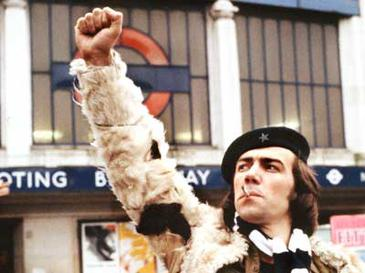
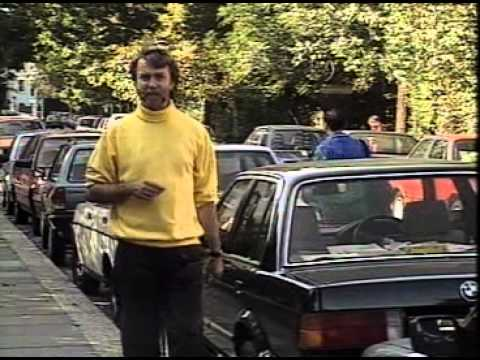
Above: Robert Lindsay as “Wolfie” Smith in Citizen Smith; An early episode of Top Gear
Top Gear was a British motoring magazine programme created by the BBC and aired on BBC Two beginning in April of 1977. The programme focused on a range of motoring topics, the most common being car reviews, road safety and consumer advice. Originally presented by Angela Rippon and Tom Coyne, the show would eventually see a range of different presenters and reporters front the programme's half-hourly slots, including Noel Edmonds, Jeremy Clarkson, Tiff Needell, William Woollard and Quentin Willson.
There were, of course, also variety shows, game shows, sporting events (especially football), the news, and a variety of other programmes for viewers to choose from as well. As it did across the Pond, British television in the 1970s matured and took its audience more seriously, even as it was trying to make them laugh.
Next Time on Blue Skies in Camelot: Music in the 70s - A Retrospective
Thanks! Glad you enjoyed it.Nice Chapter good summary of how British television is doing
Excellent update, though Fawlty Towers is the only one of the shows I'd be familiar with.
The 1970s gave birth to several iconic television shows that have left an indelible mark on British culture and television history. Among them, one of the most influential was Fawlty Towers. Created by and starring John Cleese (Monty Python’s Flying Circus wrapped its final series in 1974), this sitcom about the misadventures of a hapless hotel owner, Basil Fawlty, and his eccentric staff, remains a classic example of British humor. Its memorable characters, witty dialogue, and farcical situations have continued to entertain audiences for decades, and inspired many sitcoms that have come since. Though initially, reviews of the show were mixed to negative, Cleese and his team continued producing episodes and eventually, audiences caught on to what they were serving up. The show would run for four series between 1975 and 1979, producing a total of twenty-four episodes.
Another enduring classic of the era is Dad's Army. A sitcom, which ran from 1968 to 1977, revolved around the misfit soldiers of the Walmington-on-Sea Home Guard during World War II. The show's humor, largely based on the quirks and foibles of its older characters (played by several of Britain's finest television actors), made it an endearing favorite.
The four, in my opinion, are a few of the best British sitcoms, alongside other great 70s and 80s sitcoms such as Yes Minister, Allo Allo, Only Fools and Horses, and BlackadderMind Your Language was another show that tried to engage with issues of diversity, albeit through humor. The series centered on the interactions between a multicultural group of adult students learning English as a second language. While it may have contributed to conversations about multiculturalism in England at the time, the show usually used its foreign characters as “the butt of the joke”, and was generally held by audiences to be fairly mean-spirited. The show lasted only one series before being canceled.
Another show that poked fun at political issues of the day was Citizen Smith. Written by John Sullivan, and broadcast from 1977 to 1980, the show is a sitcom starring Robert Lindsay as Walter Henry "Wolfie" Smith, a young Marxist "urban guerrilla" in Tooting, south London, who is attempting to emulate his hero Che Guevara. Wolfie is a reference to the Irish revolutionary Wolfe Tone, who used the pseudonym "Citizen Smith" in order to evade capture by the British. Wolfie is the self-proclaimed leader of the revolutionary Tooting Popular Front (the TPF, merely a small bunch of his friends), the goals of which are "Power to the People" and "Freedom for Tooting". Wolfie dresses in a stereotypical fashion for rebellious students of the period: logoed T-shirt, denim jeans and Afghan coat. He supports Fulham F. C. and occasionally wears a Fulham scarf. He rides a scooter and spends most of the time at his girlfriend's house, which means he constantly clashes with her parents.
I wonder if, with an earlier #MeToo movement (called So Have I here TTL), if a famous BBC personality with the initials JS (1) gets found out for his crimes earlier than OTL--the effects of that would be very interesting, IMO...
The chances of his being exposed earlier have just gone way up, methinks...
Good chapter, BTW...
(1) JS, of course, stands for James Savile (I am not going to call him Sir because he doesn't deserve it), aka Jimmy Savile, one of the most prolific sexual abusers in British history in OTL...
The chances of his being exposed earlier have just gone way up, methinks...
Good chapter, BTW...
(1) JS, of course, stands for James Savile (I am not going to call him Sir because he doesn't deserve it), aka Jimmy Savile, one of the most prolific sexual abusers in British history in OTL...
That is a good point hopefully like Polanski he gets tried and ImprisonedI wonder if, with an earlier #MeToo movement (called So Have I here TTL), if a famous BBC personality with the initials JS (1) gets found out for his crimes earlier than OTL--the effects of that would be very interesting, IMO...
The chances of his being exposed earlier have just gone way up, methinks...
Good chapter, BTW...
(1) JS, of course, stands for James Savile (I am not going to call him Sir because he doesn't deserve it), aka Jimmy Savile, one of the most prolific sexual abusers in British history in OTL...
Not only Savile, but a certain LibDem politician named Cyril Smith could also potentially be exposed early in TTL.I wonder if, with an earlier #MeToo movement (called So Have I here TTL), if a famous BBC personality with the initials JS (1) gets found out for his crimes earlier than OTL--the effects of that would be very interesting, IMO...
The chances of his being exposed earlier have just gone way up, methinks...
Good chapter, BTW...
(1) JS, of course, stands for James Savile (I am not going to call him Sir because he doesn't deserve it), aka Jimmy Savile, one of the most prolific sexual abusers in British history in OTL...
Edit: forgot that its still the Liberal Party TTL. The merger with the SDP could potentially be butterflied.
Last edited:
Even if he isn't gotten for that (unlike Saville the evidence is slightly more borderline) the man was as bent as a three pound note and a proud supporter of the asbestos industry. Plenty of ways to destroy him...Not only Savile, but a certain LibDem politician named Cyril Smith could also potentially be exposed early in TTL.
Well that doesn't sound ominous at all, no siree bob, nope, nothing ominous or suspicious about that at all.........As of 1979, he is just about to finish his prison sentence. He will be released in March of 1980, just in time to watch his arch-nemesis: Robert F. Kennedy, run for president...
Share: